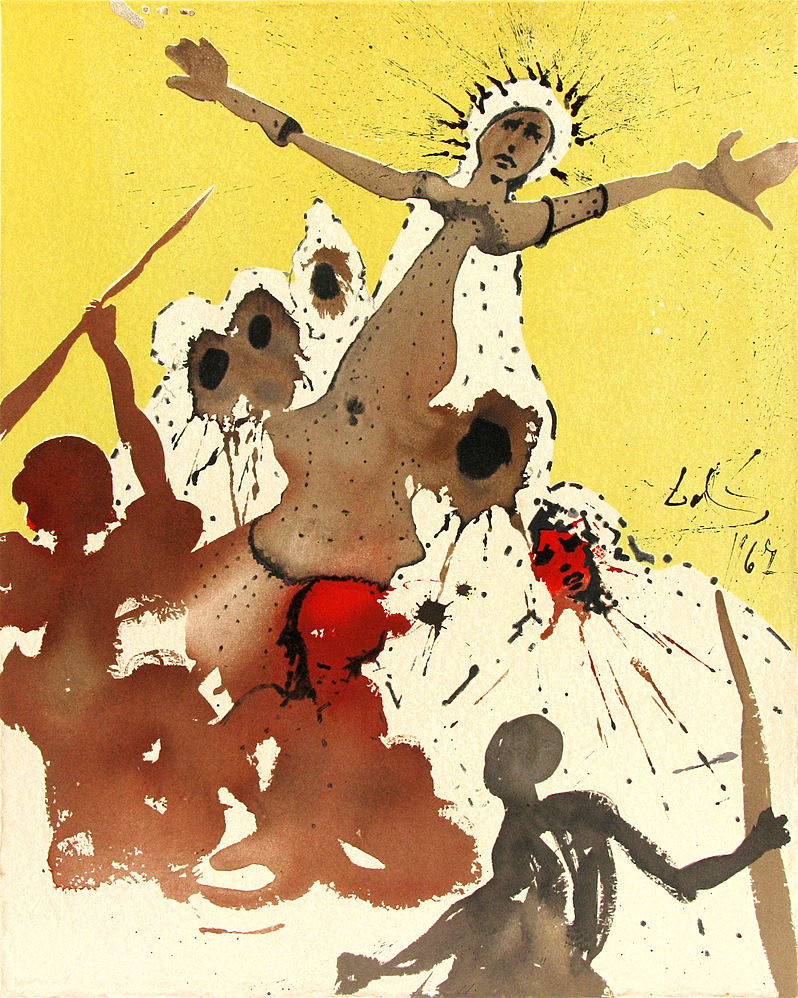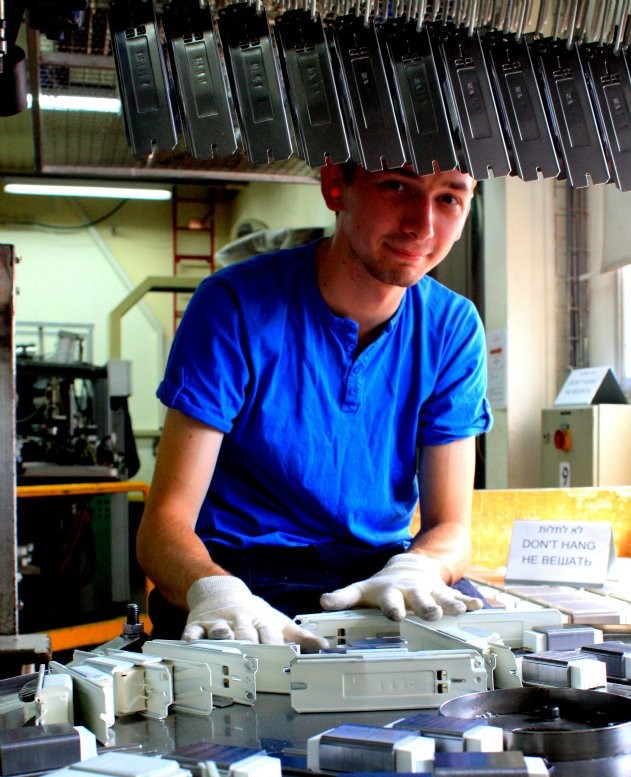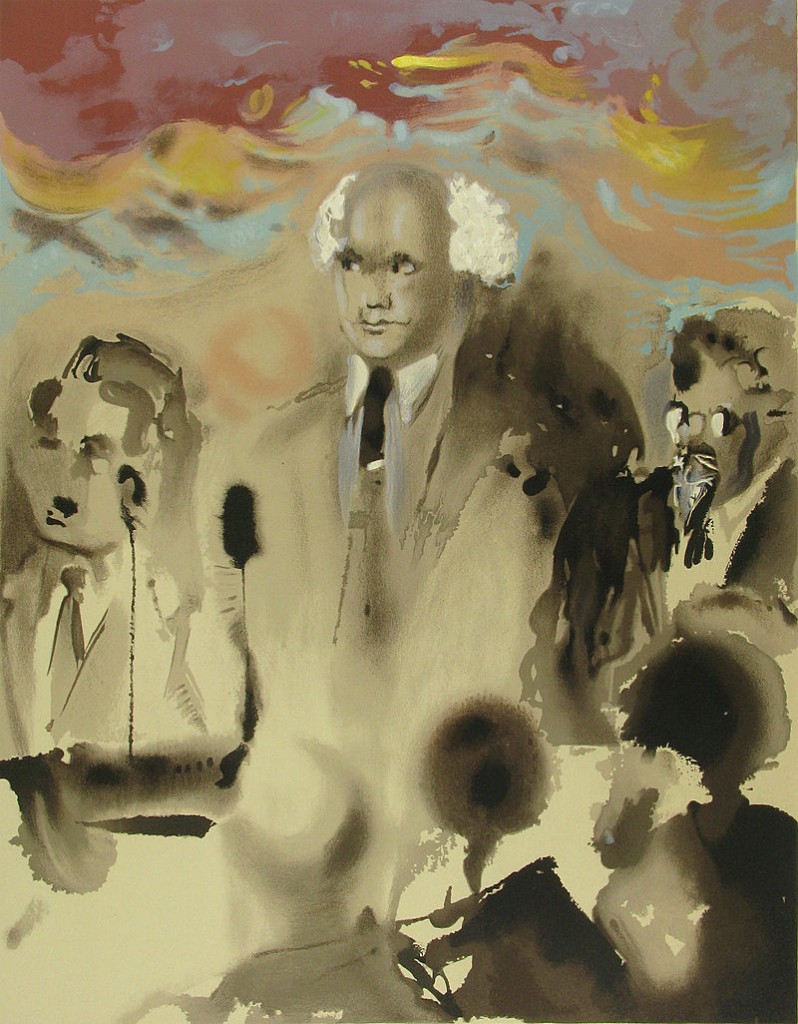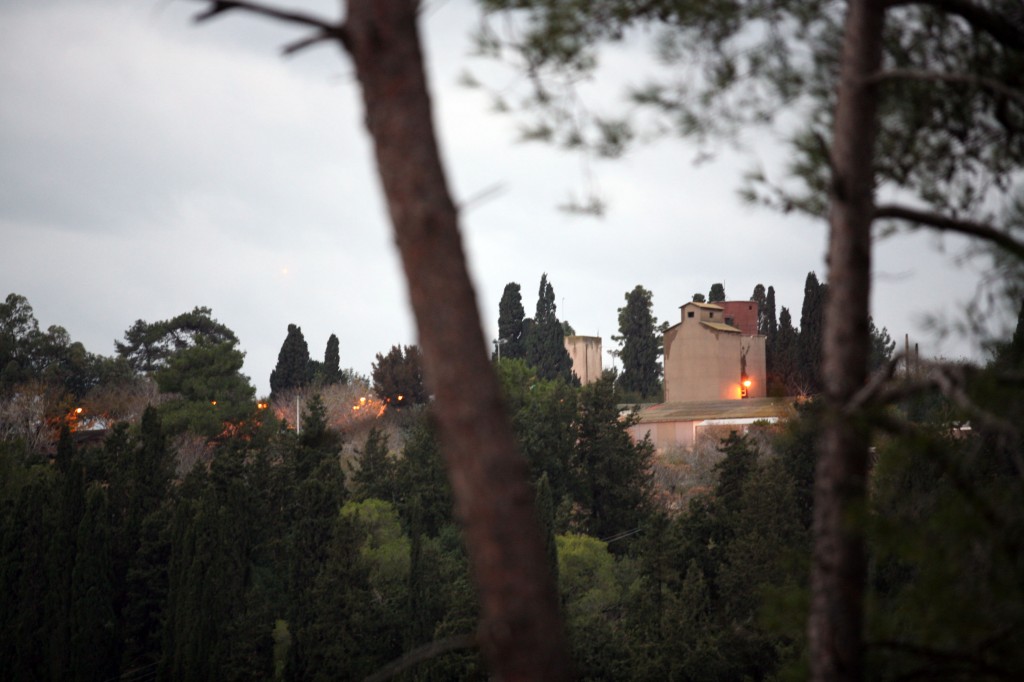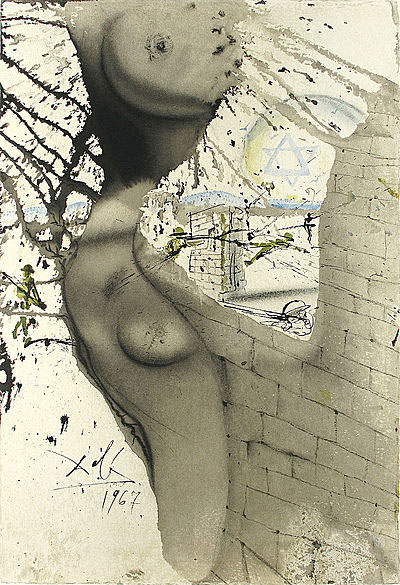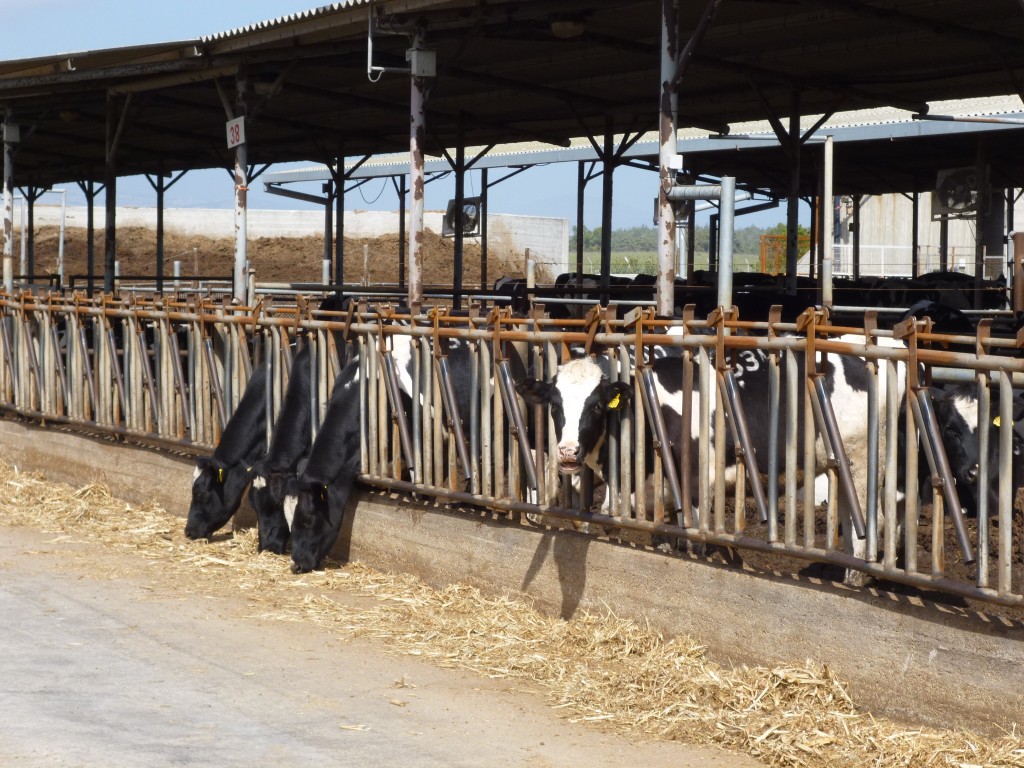As opposition to Israel grows more virulent across Europe, a meditation on love for the Jewish state.
I am not Jewish, but then again, neither were most of the volunteers at Ein Hashofet, a kibbutz located somewhere between Haifa and the Sharon plain. It had been founded during the Arab Revolt of 1936-39 by immigrants from Poland and the United States who were of the Left-wing Hashomer Hatzair movement. The first settlers had to manually drain the land and plant trees to make it viable, while residing in tents, eating meager meals, and using communal showers and toilets. They were also required to defend the fruits of their labors, not only during the revolt but also the War of Independence, during which the nearby kibbutz of Mishmar Ha’Emek was attacked by the Arab Liberation Army.
I would have made a terrible Zionist pioneer. After arriving from Tel Aviv, I managed to last a week as a gardener, working with power tools and doing tasks no more arduous than raking up dead brush before I started pleading for a change of scene. “Not everyone can be a gardener,” Roni, my extremely kind and understanding boss, told me. “Not everyone can be a writer.” He may have been humoring me with that one. So, for the remainder of my time at Ein Hashofet I worked in the main factory, which manufactured ballasts and transformers for fluorescent light fixtures (someone has to), spending hours hanging the near-completed items on hooks and reading Amos Oz novels during downtime.
Based on my observations, it is fair to say that people rarely have clear reasons for leaving behind the comforts of home for a few months of toiling under the hot sun. All the volunteers seemed to be trying to run away from something or leave something behind. Or they were searching for something, looking to remake themselves. Some didn’t seem to know why they were there at all. Others were simply looking for a good time. Arak was complementary at the kibbutz pub, so if you were so inclined, what could be better?
My own motivations were clearer. For me, the kibbutz was a place where I could explore my early attraction to Israel, which was more instinctive than anything else, and grounded in an understanding of Middle Eastern history. The time I spent exploring and putting something back into the land was a formative experience, the beginning of something larger. At Ein Hashofet, I began a greater examination of Israel—its history, its political and social divisions, its culture—out of which arose a deeper commitment to the ideology of Zionism itself, albeit from a goyishe perspective.
Not being Jewish inevitably means that I have a different relationship with the Jewish state than people who are. That much is inescapable. I do not have a direct, historical connection to Israel through lineage or conversion. No one in my family lives there. I am not entitled to make aliya. I will never have to serve in the IDF.
The most obvious result of this is that it has made me a secular Zionist. Indeed, in the earliest expression of my Zionism that I can find—a letter to The Times from June 2010, at the time of the Mavi Marmara incident—I called Israel a “secular miracle,” an earnest phrase that does not necessarily make a great deal of sense. What I mean by it is that, while I appreciate that Jews of all denominations are able to practice their faith openly, actively, and vibrantly without fear or compromise (almost, anyway), the Israel I admire is to be found in the achievements of man: the kibbutz, the Knesset, and the novels of Oz and David Grossman.
But it also means that, while I do not recognize the land to be God-given, I have come to appreciate the Jewish people’s tangible and emotional attachment to eretz yisrael—that a homeland for Jews cannot be located anywhere else than what Herzl described as the “ever-memorable historic home.” My secularism does not preclude me from resolutely defending the Jewish claim to a state in at least part the Land of Israel, including a capital in Jerusalem. The reason for this is best expressed in the opening paragraphs of the Declaration of the Establishment of the State of Israel: that the Land of Israel was “the birthplace of the Jewish people.”
Indeed, eretz yisrael was where the Hebrew script was born and developed in the ninth and tenth centuries BCE, and where monotheism emerged shortly after. It was where Judaism and Jewish civilization were created. Where the First and Second Temples were built and became the center of spiritual life. Where Jewish sovereignty first emerged, where the line of kings descended from David and Solomon was established, and where the first rebellions in the name of Jewish self-determination took place: the Maccabean rebellion against the Seleucids; the Great Revolt of 66 AD that ended with the destruction of the Second Temple; and the Bar Kokhba revolt, the final war against Roman rule.
I am a Zionist, then, because the Jewish physical and emotional link to eretz yisrael is indisputable. On this issue, religious belief is or should be wholly irrelevant. Those who deny it—as Yasser Arafat did when he suggested as late as 2000 that Jerusalem had never been the site of the Jewish Temple—deny the simple facts of history.
Anti-Semitism is a Jewish burden, but a human concern. It is the responsibility of all of us, not only Jews, to combat it or, failing that, to do whatsoever can be done to ameliorate its effects. I am a Zionist because Theodor Herzl’s belief that a Jewish homeland in Palestine was necessary because of anti-Semitism is as valid today as it was when he first set it forth in The Jewish State.
The stigmatization of Jewish communities in the Diaspora, Herzl said, demanded “a solution on a political basis.” “No-one can deny the gravity of the situation of the Jews,” Herzl said of fin de siècle Europe. “The Jewish question exists wherever Jews live in perceptible numbers. Where it does not exist, it is carried by Jews in the course of their migration. We naturally move to those places where we are not persecuted, and there our presence produces persecution.” The only answer to this question, he wrote, was a state for Jews. “We shall live at last as free men on our own soil, and die peacefully in our own homes.”
In many places today, the Jewish predicament is not as grave as Herzl imagined. He alluded to the introduction of anti-Semitism to America, but he seems to have been wrong about this. As Jeffrey Goldberg outlined in his contribution to the New American Haggadah, the United States has become a place that “comprehensively accepts, even embraces, its Jewish citizens.” Similarly, Jews are able to live their lives as Jews in the United Kingdom, Canada, and Australia largely without fear of prejudice or violence.
Herzl also hoped that a Jewish state would resolve the Jewish question for good, and that as a result “anti-Semitism would stop at once and forever.” But since 1948, anti-Semitism seems to have evolved from charges of deicide and racist junk science into a violent form of anti-Zionism—the use of the word “Jew” as epithet has been superseded by the word “Zionist.” This is not because of Israel, but rather because the Jewish question appears to be unanswerable. “The Jewish people and their fate are the living witness for the absence of redemption,” Leo Strauss wrote in “Why We Remain Jews.” “This, one could say, is the meaning of the chosen people; the Jews are chosen to prove the absence of redemption.”
The existence of Israel may not have answered the Jewish question, but it seems to me that Jewish autonomy and self-governance has proven to be the best response to it yet conceived. Herzl’s dream has granted safety and prosperity to millions of Jews. While that immediate need for Israel may have dissipated for American Jews, suffice it to say that it has not for the Jews of Europe, whose diminished Jewish communities (some of which now number only in the hundreds in central and eastern Europe) suffer from new manifestations of anti-Semitism.
In Scandinavia, as I have previously written, there are the dual problems of sometimes violent anti-Zionism and attempts to legislate away Judaism through bans on circumcision and ritual slaughter. In eastern and southern Europe, there has been a resurgence of far-right extremism, with openly anti-Semitic parties like the Golden Dawn in Greece and Jobbik in Hungary making considerable electoral gains since the Eurozone economic crisis. And then there’s France, where the most notable threat to Europe’s largest Jewish community is radicalization and violence from the large Muslim population—a product of alienation, isolation, and ghettoization. Amidst the crisis, Hungarian Jews are moving to Austria, just as French Jews are emigrating to London, but all over Europe aliyah continues to be a welcome escape option. For this reason, Zionism remains alive and relevant, and very much worth defending.
What intrigues me still about the kibbutz is that it remains, in microcosm, an experiment in Jewish self-determination. In its origins, Ein Hashofet was one of the tower and stockade kibbutzim founded during the aforesaid Arab Revolt, the vanguard of the socialist Zionist revolution in Palestine. Within the boundaries of the kibbutzim, societies emerged that were both Jewish and democratic. As the kibbutzim opened themselves up, they both absorbed and helped assimilate new olim from Europe, the Middle East, North Africa, and the former Soviet Union, as well as employing Arabs from nearby villages, offering possibilities for cooperation and coexistence between different peoples within a Jewish society.
What can be said of Ein Hashofet and the kibbutzim in general can also be said of Israel: its Jewish democracy is essential to its greatness. In the tradition of Left-wing Zionist parties like Labor and Meretz, I am a Zionist committed to the vision of Israel as secular, pluralistic, and democratic. It is possible for Israel to be dedicated to its role as a homeland for the Jewish people while being (to use that oft-cited expression from the Book of Isaiah) a light unto the nations—an example for human rights, social justice, and civil law not just for the countries in Israel’s tough neighborhood but for Europe and the United States as well. Its political scene is so fractured and argumentative that there is no political opinion that does not receive attention. “The world will be freed by our liberty, enriched by our wealth, magnified by our greatness,” Herzl wrote. “And whatever we attempt there to accomplish for our own welfare, will react powerfully and beneficially for the good of humanity.”
With this in mind, I must nonetheless point out that to have an open society on one side of the Green Line and a military occupation on the other undercuts and undermines Jewish democracy. A resolution to the Israeli-Palestinian conflict and the establishment of a Palestinian state are therefore crucial to Israel’s future. As it stands, the effect of the occupation for both Israelis and Palestinians, as Marcelo Dascal of Tel Aviv University surmised in his recent contribution to The Impacts of Lasting Occupation: Lessons from Israeli Society, is to “deepen and expand the animosities between the adversaries through their daily contact; they reinforce the most heinous features of the stereotypic perception of each other; and they reciprocally delegitimize their moral, intellectual and cultural values as human beings.” Or, as Amos Oz has put it, “the occupation of the West Bank is corrupting both for the occupier and the occupied.” The longer it continues, the more difficult it is to end.
Agreement between the two peoples has been hindered by the settlement enterprise, which has proven to be the biggest mistake in the history of Zionism. It was a miscalculation to think that the state’s salvation lay in populating the West Bank with Jewish settlers, or that its security could be guaranteed that way. It was misguided of Israeli governments like that of Menachem Begin to endorse organizations like Gush Emunim, with their potent and even toxic mix of political and religious zeal that encouraged a conflict between fanaticisms in which there can be no victor. By entangling the lives of Israelis and Palestinians through houses, schools, shopping malls, roads, bridges, and tunnels, governments led by both Labor and Likud have made the act of partition and guaranteeing a Jewish-majority state all the more difficult.
I am a Zionist because to say such things is to advocate for the sine qua non of Zionism: the desire for a Jewish state. Without partition and the creation of two states for two peoples, Israel will eventually become a democratic state without a Jewish majority, or one in which many of its citizens are denied their basic human rights. David Ben-Gurion outlined this fundamental dilemma when he spoke of the conundrum he faced during the War of Independence.
We could, militarily… have occupied all of the western land of Israel. And then what would happen? We would become one state. But that state would want to be democratic, there would be general elections—and we would be in the minority. Thus, when the question arose of the wholeness of the land without a Jewish state, or a Jewish state without the wholeness of the land, we chose a Jewish state without the wholeness of the land.
Ariel Sharon put it in much starker terms. “It is impossible to have a Jewish democratic state, at the same time to control all of eretz yisrael. If we insist on fulfilling the dream in its entirety,” he said, “we are liable to lose it all.” A Palestinian state, therefore, is not a sop to the Palestinian people or the international community. As Zionist leaders like Ben-Gurion and Sharon, Yitzhak Rabin, Shimon Peres, Tzipi Livni, and Ehud Olmert have all concluded, it is the only way to save Jewish democracy and the Zionist project. I agree with this assessment, because I am a Zionist too.
Not being Jewish, my relationship with the Jewish state is complicated by the thorny matter of critiquing the Israeli government and its policies. Who am I to air such criticisms? What right do I have to suggest what is good and proper for Israel? After all, as President Obama stated emphatically in his Jerusalem address, only the Israeli people can determine what kind of democracy they will have and what kind of state they will have. I am a stranger, and decisions of security, war, and peace, to withdraw or not to withdraw, will never personally affect me or members of my family.
Because I recognize that the purpose of Israel is to be a haven, then besides being democratic it must also be secure. The occupation, as deplorable and debasing as it is, exists because of a necessary war to save the Jewish state. The occupation has dragged on because of many things for which Israel is not responsible: Because it took until 1993 for the PLO to formally recognize Israel’s right to exist and to relinquish violence. Because the Israeli government made workable offers of statehood to both Yasser Arafat and Mahmoud Abbas that were refused. Because Israelis have lived through two intifadas in which suicide bombers blew up shopping malls, restaurants, and bus stations. Because when Israel unilaterally withdrew from southern Lebanon in 2000 and Gaza in 2005, both territories became sanctuaries for violence and terror against the Jewish state. Israel’s security concerns are legitimate and decisive. They must be taken seriously, even by the most dovish of doves.
I believe that I would not be a good Zionist or an honest friend, however, if I did not speak about the occupation. Indeed, given Israel’s diverse, opinionated, and confrontational political scene, I dare say it would be against the very nature of Israel and Zionism not to criticize the Israeli government. But I also feel that to critique from within the Zionist tent comes with a responsibility to defend Israel as both an idea and a reality from those who would rather it never existed in the first place. I am a Zionist because there is something inherently myopic, ignorant, and nasty about present-day anti-Zionism that must be confronted.
Anti-Zionism is myopic because it sees but does not understand. It views the nakba and the displacement of the Palestinians during the War of Independence as an original sin and natural consequence of Zionism, ignoring that the catastrophe was far from inevitable. Had the Arab world accepted the United Nations’ partition plan and refrained from starting a war of annihilation against Israel, the nakba never would have happened. Anti-Zionism today recognizes the injustice of the post-’67 occupation of the West Bank, but refuses to acknowledge why it exists in the first place, or why Israelis might have concerns about withdrawing from the West Bank without iron–clad security guarantees. Anti-Zionism sees a region stumbling from one war to the next, but refuses to blame anyone except Israel for these conflicts.
Anti-Zionism is ignorant, not only of Jewish history and the historic justification for a Jewish homeland in Palestine, but also in terms of its proposed solution to the conflict. Anti-Zionism demands a one-state solution in which Jews and Arabs would co-exist within the boundaries of a single entity between the Jordan river and the Mediterranean sea. But this is not a solution at all. It is acceptable to neither Israelis nor Palestinians. It would be a recipe for endless confrontation and unrest between the two groups, and would leave Jewish communities bereft of security within an Arab-majority state. As Gershom Gorenberg has persuasively argued, “virtually every question that bedevils Israeli-Palestinian peace negotiations will become a domestic problem setting the new political entity aflame.”
Finally, anti-Zionism is nasty because it denies the Jewish people a right that has been afforded to nearly every other people: the right to statehood and self-determination. In singling out Israel for vociferous condemnation over other existing states, anti-Zionists invite serious questions about their motives. Anti-Zionists should always be forced to explain why exactly it is that the Jews are the only nationality not entitled in theory or practice to a state of their own; and why they hold that a Jewish and democratic state in the Middle East has no right to exist, while saying nothing about the legitimacy of the autocratic governments of the Middle East or terrorist organizations like Hezbollah and Hamas. One’s answer to these essential questions says a good deal, for good or ill, about a person’s character.
One of the surest ways to counter this anti-Zionism, as James Kirchick recently wrote in Haaretz, “would be for individuals who are not themselves Israeli or even Jewish, yet who support the existence of a Jewish State, to express their Zionism.” Here I stand. I am a Zionist because the Jewish people are as entitled to state of their own today as they were when Zionism was conceived. I am a Zionist because the politically and economically open and dynamic state the Jews have constructed for themselves in a short 65 years is remarkable and unique. And I am a Zionist because now that there is a state for Jews who wish it, I certainly won’t let anyone demand its extinction.
I would not have been able to express my Zionism fully had it not been for the kibbutz. Had I not lived and worked as an outsider within an outgoing experiment in Jewish democracy. Had I not traveled from Dan to Masada and Jerusalem to Tel Aviv, forging an emotional attachment to the land and its people. Had I not explored both Palestinian towns and Israeli settlements, seeing the complexities of the conflict. Over time, the issues have become clearer to me, and even if my liberal Zionism sometimes makes my relationship with Israel rather challenging, it has also made it undeniably rewarding.
But what about before I figured all this out? I sometimes wonder why I felt impelled to call Israel a “secular miracle” in the pages of The Times, to push back against anti-Israelism in the pages of my student newspaper, to volunteer at a kibbutz in the first place. Where did it all come from?
Being from Britain, I think my basic desire for there to be a Jewish state in Palestine is partly born of guilt, of being shackled to my country’s decidedly abject record in the Middle East. During the early 20th century, it was the British and French who sought to control the Middle East by dividing and conquering, fuelling the dream of a single pan-Arab state while promising “the establishment in Palestine of a national home for the Jewish people” to Zionist leaders. It was the British who were tasked by the League of Nations with “placing [Mandatory Palestine] under such conditions as will secure the establishment of the Jewish National Home,” but failed to do so. And it was the British who, in order to placate Arab unrest in Palestine, limited Jewish immigration and land purchases, including in 1939, a time when escape from Europe was an existential necessity for the Jewish people.
And there is Holocaust guilt, too. Not, perhaps, in the way a German or Frenchman might experience it, i.e., as a consequence of their nation’s collaboration or complicity. Nonetheless, and in spite of Britain’s staunch resistance to Nazism after 1939, it is indisputable that my government did essentially nothing to prevent or halt the slaughter of European Jewry. Not only did Britain put strict limits on legal immigration to Palestine prior to the war, it accepted only a limited number of Jewish refugees from the German Reich. In June 1944, during the Shoah, both the British and Americans not only passed up the opportunity to bomb Auschwitz when evidence of its purpose was overwhelming, but did not even consider the feasibility of such an operation, which might have saved thousands of lives.
Israel does not exist solely because of the Holocaust. To assert the contrary would be to ignore Zionism’s origins in Jewish history and culture, and as a logical response to two-thousand years of anti-Semitism. It is certainly the case, however, that the attempt to destroy the Jewish people and wipe out its contribution to European history, politics, and culture was, as Israel’s Declaration of Independence put it, a “clear demonstration of the urgency of solving the problem of its homelessness by reestablishing in the Land of Israel the Jewish State.” In a sense, then, my Zionism is grounded in the idea of restitution; that as a Briton and a European I have a special obligation to the Jewish people and Israel.
But that’s only the half of it. “The most gracious thing said to me when I discovered my family secret,” Christopher Hitchens wrote in his memoir, Hitch-22, “was by Martin [Amis], who after a long evening of ironic reflection said quite simply: ‘Hitch, I find that I am a little envious of you.’” That “family secret” was that Hitchens’ mother was Jewish, something she had concealed from him and he only discovered in midlife. Amis’ envy is something I understand entirely.
Recently, a Jewish comrade of mine mistook me for a Jew. I could not help but feel pleased, and I have experienced the same emotion when such misunderstandings occurred in the past: When I was asked by a friend if I kept kosher. When someone in Jerusalem insisted I must have some Jewish ancestry because a kippa seemed so suited to me (though I’m not sure it was a compliment—it might be on account of my large head).
To an extent, I suppose I encourage such misunderstandings. In addition to my public Zionism, as well as grave concern for the future of Europe’s Jews, I have a small Israeli flag pin on my coat. I own a kippa I purchased in Jerusalem, and make sure to carry it with me when visiting a shul or cemetery in a city where Jews are in peril. I developed habits at the kibbutz like drinking Turkish coffee (packets of which I have to procure from a kosher grocery store in Golders Green) and making sure to wish my Jewish friends shabbat shalom or hag sameach. In doing so, I am admittedly flirting with Jewishness in an innocuous and innocent way, though I would be lying if I said these little gestures weren’t of importance to me, or that I didn’t take delight in them.
At the same time, however, I always feel a need to correct such misunderstandings. Ben-Gurion once said that “whoever says they are a Jew, is a Jew,” but added the caveat, “because no one would accept the problem of being a Jew unless they are a Jew.” I take this to heart, and correct those who mistake me for a Jew because I believe Strauss was right to say the Jewish story “proves the absence of redemption,” and because of my respect for those who must carry the burden of centuries of anti-Semitism. To dabble around the edges of Jewish life is one thing, but to be what A.B. Yehoshua might call a total Jew is quite another.
In other words, it is not that I would not want to be a Jew, but that I am unable to be one. Not only because of my respect for the burden of total Jewishness, but because I could not sincerely undergo the process of becoming Jewish. Just as my Zionism is secular, so is my outlook on the world and my attitude toward religion in general. To convert to Judaism would be undesirable and unwanted not because of disrespect or intolerance but because I neither possess nor fully comprehend the spiritual or ritualistic impulse. Even considering that Reform and other liberal Jewish traditions place a special and appealing emphasis on social justice, the process of conversion to any Jewish denomination would be a hollow experience for me.
Unable to be Jewish, then, my gestures toward Jewishness can best be explained as a search for acceptance, to be received as a welcome stranger. My liberal Zionism can be explained in the same way. Beneath my understanding of the ties that bind the Jews to Israel, my concern about anti-Semitism, my admiration of Israel’s Jewish democracy and fear for its future, and my hatred of anti-Zionism, I am a Zionist because I have a simple, sincere wish—motivated by guilt and longing—to do right by the Jewish people. And if this manifests itself from time to time in criticism of Israel’s government, so be it.
Not being Jewish inevitably affects my relationship with the Jewish state. There will always be certain distance, a space between it and I, like a window through which I observe the land and its people. But I look through that window with my nose pressed up against the glass, gazing at Israel with a yearning that, for all my efforts, can never quite be entirely fulfilled.
Banner Photo: Kibbutz Ein Hashofet/facebook
![]()






